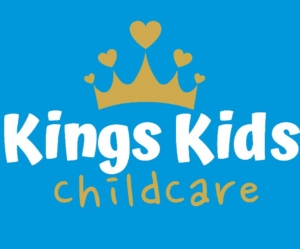EYFS.
What is the Early Years Foundation Stage?
The Early Years Foundation Stage (EYFS), is how the Government and early years professionals describe the time in your child’s life between birth and age 5.
This is a very important stage as it helps your child get ready for school as well as preparing them for their future learning and successes. From when your child is born up until the age of 5, their early years’ experience should be happy, active, exciting, fun and secure; and support their development, care and learning needs.
What is the EYFS Framework?
The EYFS Framework exists to support all professionals working in the EYFS to help your child, and was developed with a number of early years experts and parents.
In 2012 the framework was revised to make it clearer and easier to use, with more focus on the things that matter most. This new framework also has a greater emphasis on your role in helping your child develop.
It sets out:
- The legal welfare requirements that everyone registered to look after children must follow to keep your child safe and promote their welfare
- The 7 areas of learning and development which guide professionals’ engagement with your child’s play and activities as they learn new skills and knowledge
- Assessments that will tell you about your child’s progress through the EYFS
- Expected levels that your child should reach at age 5, usually the end of the reception year; these expectations are called the “Early Learning Goals (ELGs)”
- There is also guidance for the professionals supporting your child on planning the learning activities, and observing and assessing what and how your child is learning and developing
Characteristics of Learning
The Characteristics of Effective Learning and the prime and specific Areas of Learning and Development are all interconnected.
Characteristics of Learning include:
- Playing and exploring
- Active Learning
- Creating and thinking critically.
The ways in which the child engages with other people and their environment – playing and exploring, active learning, and creating and thinking critically – underpin learning and development across all areas and support the child to remain an effective and motivated learner.
The prime areas begin to develop quickly in response to relationships and experiences, and run through and support learning in all other areas. The prime areas continue to be fundamental throughout the EYFS.
The specific areas include essential skills and knowledge. They grow out of the prime areas, and provide important contexts for learning.
What does it mean for me as a parent?
Ensuring my child’s safety
Much thought has been given to making sure that your child is as safe as possible. Within the EYFS there is a set of welfare standards that everyone must follow. These include the numbers of staff required in a nursery and things like administering medicines and carrying out risk assessments.
Quality
You can find out about the quality of your child’s nursery and other early years providers in relation to the EYFS Framework by checking what the Government’s official inspection body for early years, Ofsted, has to say about it. You can find this information at Click Here
How my child will be learning – the 7 areas of learning and development
The EYFS Framework explains how and what your child will be learning to support their healthy development.
Your child will be learning skills, acquiring new knowledge and demonstrating their understanding through 7 areas of learning and development.
Children should mostly develop the 3 prime areas first. These are:
- Communication and language
- Physical development
- Personal, social and emotional development.
These prime areas are those most essential for your child’s healthy development and future learning.
As children grow, the prime areas will help them to develop skills in 4 specific areas.
These are:
- Literacy
- Mathematics
- Understanding the world
- Expressive arts and design.
These 7 areas are used to plan your child’s learning and activities. The professionals teaching and supporting your child will make sure that the activities are suited to your child’s unique needs. This is a little bit like a curriculum in primary and secondary schools, but it’s suitable for very young children, and it’s designed to be really flexible so that staff can follow your child’s unique needs and interests. Children in the EYFS learn by playing and exploring, being active, and through creative and critical thinking which takes place both indoors and outside.
How can I help with my child’s learning?
All the fun activities that you do with your child at home are important in supporting their learning and development, and have a really long-lasting effect on your child’s learning as they progress through school.
Even when your child is very young and is not yet able to talk, talking to them helps them to learn and understand new words and ideas. If you make the time every day to do some of the following things with your child it will make a real difference to your child’s confidence as a young learner.
Progress Checks and Profiles
Once your child reaches the age of 2, the professionals working with your child must give you a written summary of how your child is progressing against the 3 prime areas of learning:
- Communication and language
- Physical development
- Personal, social and emotional development.
This is called the progress check at age 2.
This check will highlight areas where your child is progressing well and anywhere they might need some extra help or support – and how mums and dads and other family members or carers can work with the key person to help. You might find it useful to share the information from the check with other professionals such as health visitors (who can use it as part of the health and development review).
When your child is 5
At the end of the EYFS – in the summer term of the reception year in school – teachers complete an assessment which is known as the EYFS Profile. This assessment is carried out by the reception teacher and is based on what they, and other staff caring for your child, have observed over a period of time.
Another important part of the EYFS Profile is your knowledge about your child’s learning and development, so do let your child’s class teacher know about what your child does with you: such as how confident your child is in writing their name, reading and talking about a favourite book, speaking to people your child is not so familiar with or their understanding of numbers.
All of the information collected is used to judge how your child is doing in the 7 areas of learning and development. Finding out at this stage how your child is doing will mean that the teacher your child has in their next school year – year 1 – will know what your child really enjoys doing and does well, as well as helping them decide if your child needs a bit of extra support, what that support should be and if they are already getting it.
The school will give you a report of your child’s progress, including information from his or her EYFS Profile.

